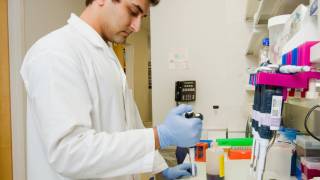Chicago Hopes to Eliminate Cervical Cancer

‘We can eliminate cervical cancer in Chicago,’ says Equal Hope.org.
But, Chicago’s progress against cancer has been much slower than the national average, said a WTTW news article published on November 5, 2019,
Chicago’s cervical cancer incidence is 39 percent higher and its mortality rate is 60 percent higher than the USA average.
‘We address women’s health holistically by helping women establish medical homes with the goal of eliminating inequities in cancer prevention, screening, diagnosis, treatment, and survivorship for all women.’
Furthermore, women of color living in Chicago are disproportionally affected by cancer. Black and Latino women are nearly 3 times more likely to have a fatal outcome from cervical cancer than white women in Chicago, according to Equal Hope’s recent report.
As an example, this new Equal Hope report found women living in Chicago’s Washington Park, are 85 times more likely to have a fatal reaction to cervical cancer than women living in adjacent Hyde Park.
Caused primarily by the Human Papillomavirus (HPV), cervical cancer can be prevented by a combination of vaccination against HPV and regular screening for pre-cancerous lesions of the cervix.
Cervical cancer is about 97 percent preventable because there are very effective vaccines available today.
There are 3 HPV vaccines that are now being marketed in many countries throughout the world - a bivalent, a quadrivalent, and a nonavalent vaccine.
All 3 vaccines are highly efficacious in preventing infection with virus types 16 and 18, which are together responsible for approximately 70 percent of cervical cancer cases globally.
>> Gardasil 9 vaccine discounts <<
In recent years, Equal Hope helped reduce racial disparities in breast cancer fatalities in Chicago. Now, they are seeking to eliminate cervical cancer in Chicago by 2040.
And to get started, Equal Now recently received $600,000 dollars in funding from the Coleman Foundation, which is a private, independent grantmaking foundation established in Illinois in 1951.
“Improving access to quality, impactful cancer services, and programming has been a central Coleman Foundation goal for over 25 years,” said Coleman Foundation President Michael Hennessy in a statement.
“We were pleased to previously support task force efforts to reduce breast cancer disparities and improve outcomes, and look forward to potential impacts of this cervical cancer initiative.”
Gaps in cancer treatment and variations in the quality of care women receive could be driving Chicago’s disparities, according to Equal Hope Executive Director Anne Marie Murphy.
“We think there may be a variety of places where things could go awry from referrals to diagnostics, to biopsy onward,” she said. “There are lots of opportunities for women to get lost in the system.”
Equal Hope is gathering experts to look at different stages of care, from diagnosis to treatment, to identify potential barriers to care and develop improvements for health systems. It will also collaborate with organizations that do vaccination outreach and education, as well as encourage women of all ages to be screened regularly.
Murphy believes Equal Hope can halve the number of cervical deaths in Chicago within a decade and eliminate the disease citywide within two decades.
“This is an exciting new initiative and it can be done,” she said.
Recent cervical cancer vaccination news
- November 5, 2019 – A new study has reported that 1-dose of the human papillomavirus (HPV) vaccine provides about 47 percent protection against high-grade cervical lesions.
- October 26, 2019 – A new study’s findings suggest that the detection of the HPV in the oral cavity is not uncommon in sexually active, female teenagers in New York City. Overall, HPV DNA was detected in the oral rinse samples of 6.2 percent of these women.
- October 13, 2019 – Now a new study suggests that the HPV vaccine may be providing men with herd immunity against HPV infections of the throat.
The Centers for Disease Control and Prevention (CDC) Advisory Committee on Immunization Practices recommends HPV vaccination with Gardasil 9 for all boys and girls at age 11 or 12, and for people through age 26 if they weren’t already vaccinated.
Unfortunately, data from 2018 indicates only 51 percent of teens have completed the HPV vaccine series.
There is some good news for those who missed their HPV vaccinations.
Based on CDC suggestions, adults age 27 through 45 years, who are not already vaccinated may decide to get the HPV vaccine after speaking with their doctor about their risk for new HPV infections and the possible benefits of vaccination.
The HPV vaccine is not recommended for pregnant women and should not be given during pregnancy. If a woman is found to be pregnant after starting the vaccination series, she should wait to finish the series until she is no longer pregnant.
Cervical cancer vaccine news published by Vax-Before-Cancer
Our Trust Standards: Medical Advisory Committee

























